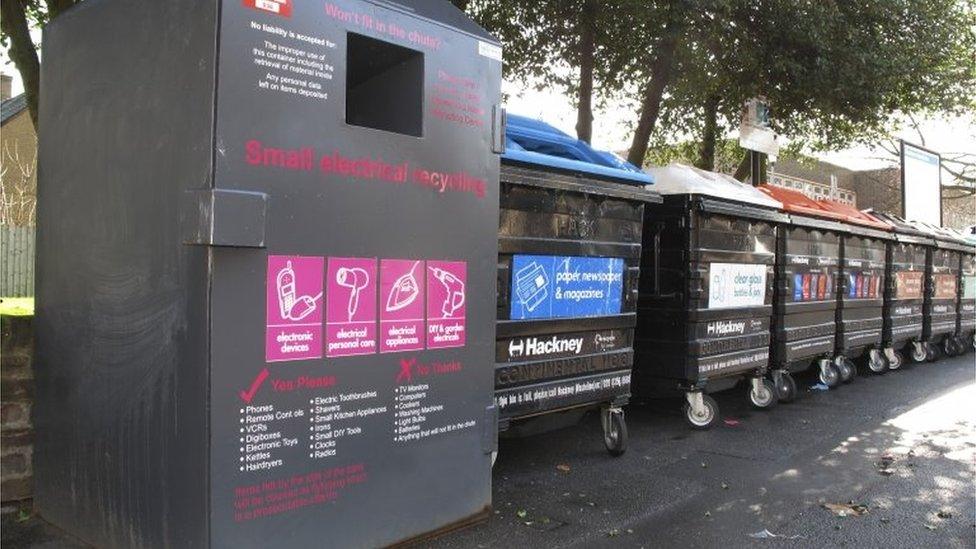Covid-19: Councils could spend £1.7bn over budget by March as costs rise
- Published
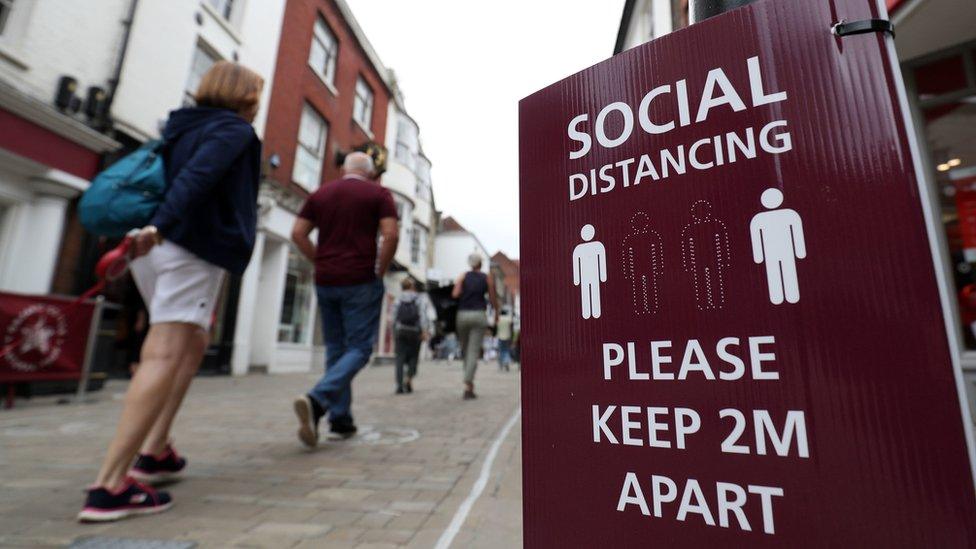
Coronavirus could see councils in England overspend their budget by £1.7bn
Nine in 10 major local authorities in England do not have enough money to cover their spending plans this year, official documents have shown.
Analysis by BBC News has found the coronavirus could see councils this year overspend their budgets by £1.7bn.
The Local Government Association (LGA) warned authorities faced "spiralling demands" on their finances.
The government said councils had received £4.8bn in emergency support since the start of the pandemic.
Since March local authorities across the country have provided emergency pandemic support to some of the most vulnerable people in society.
But the cost of providing this support has left many councils struggling financially.
How many councils are struggling?
BBC News has analysed the most recent financial monitoring documents published by 144 out of 149 unitary and county councils in England.
After taking account of emergency grant funding from central government, the documents revealed nine in every 10 of these councils was forecasting they would overspend their budget this year.
The forecasts were largely calculated on the basis of the authorities' spending in the first quarter of the 2020-21 financial year.
By law councils are not allowed to spend more money than they have in their day-to-day spending budget nor can they borrow money to fund public services.
The documents show that Hampshire County Council, external has a net budget gap of more than £80m. Council officers warned the authority needed "at least £52.4m of additional government support" before it could be considered to be "financially sustainable in the medium term".
Leeds City Council, external forecast it needed to find £52.6m by March, saying more than 400 jobs could be lost as a result.
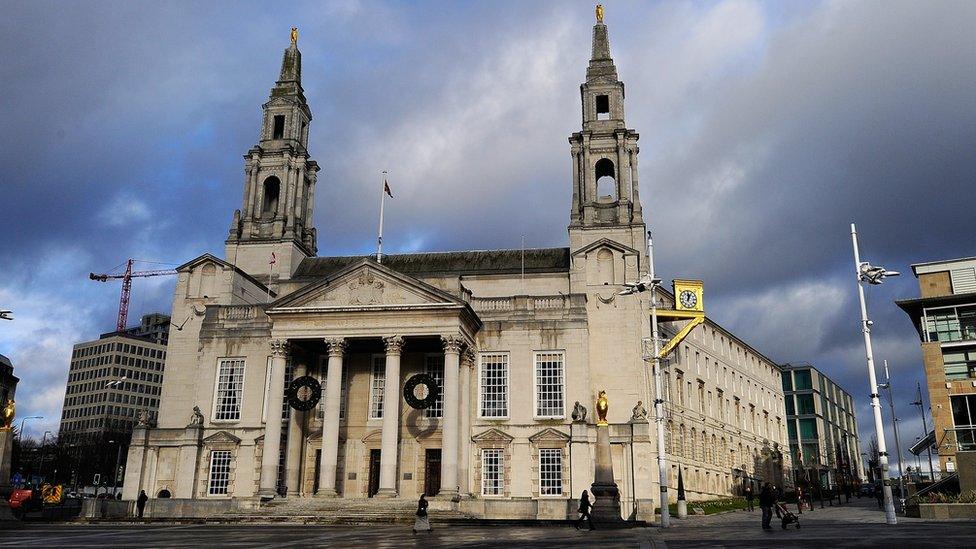
Leeds City Council said it could be forced to declare itself technically "bankrupt" in November
Key workers could now face redundancy
Amanda Burley leads a team of Leeds City Council support workers helping people to recover from covid-19. Ms Burley said her team's work was vulnerable to future budget cuts being considered by the council.
"I watched my partner lose his job at the beginning of lockdown, which put huge financial and emotional stress on us," she said.
"It's a scary place to be, fearing for your livelihood. I love my job but there's a great amount of fear, because we don't know what the budget cuts are going to be in March 2021."
The council said it was working to avoid making any employees compulsorily redundant.
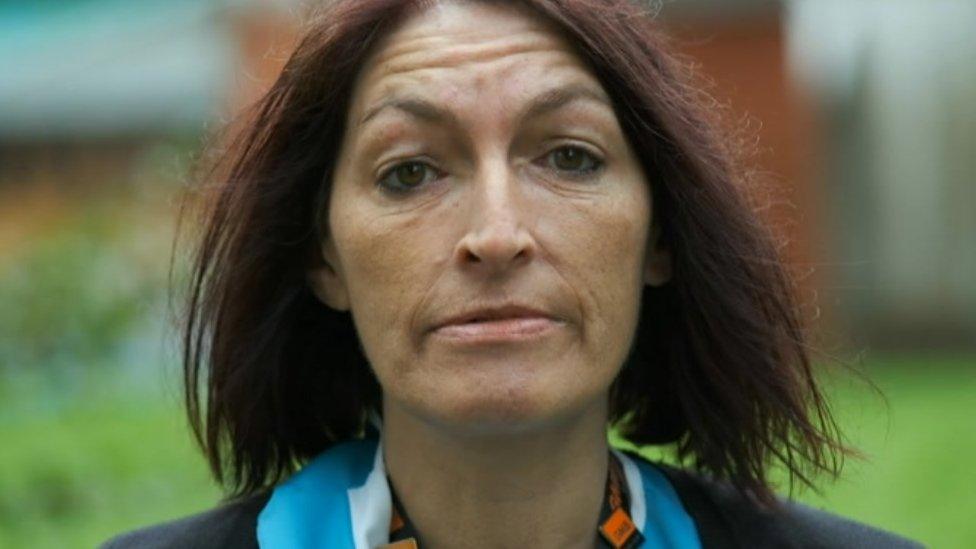
Amanda Burley, a social care worker at Leeds City Council, said her role could be closed in future budget cuts
Leeds council's deputy leader James Lewis said the authority had requested an emergency £50m loan from the government.
He said if ministers did not provide the loan, and the council could not pass an emergency budget, then the authority would have to issue a Section 114 notice in November, a technical form of bankruptcy for public authorities in England.
"Our financial problems are keeping me awake at night," said Mr Lewis.
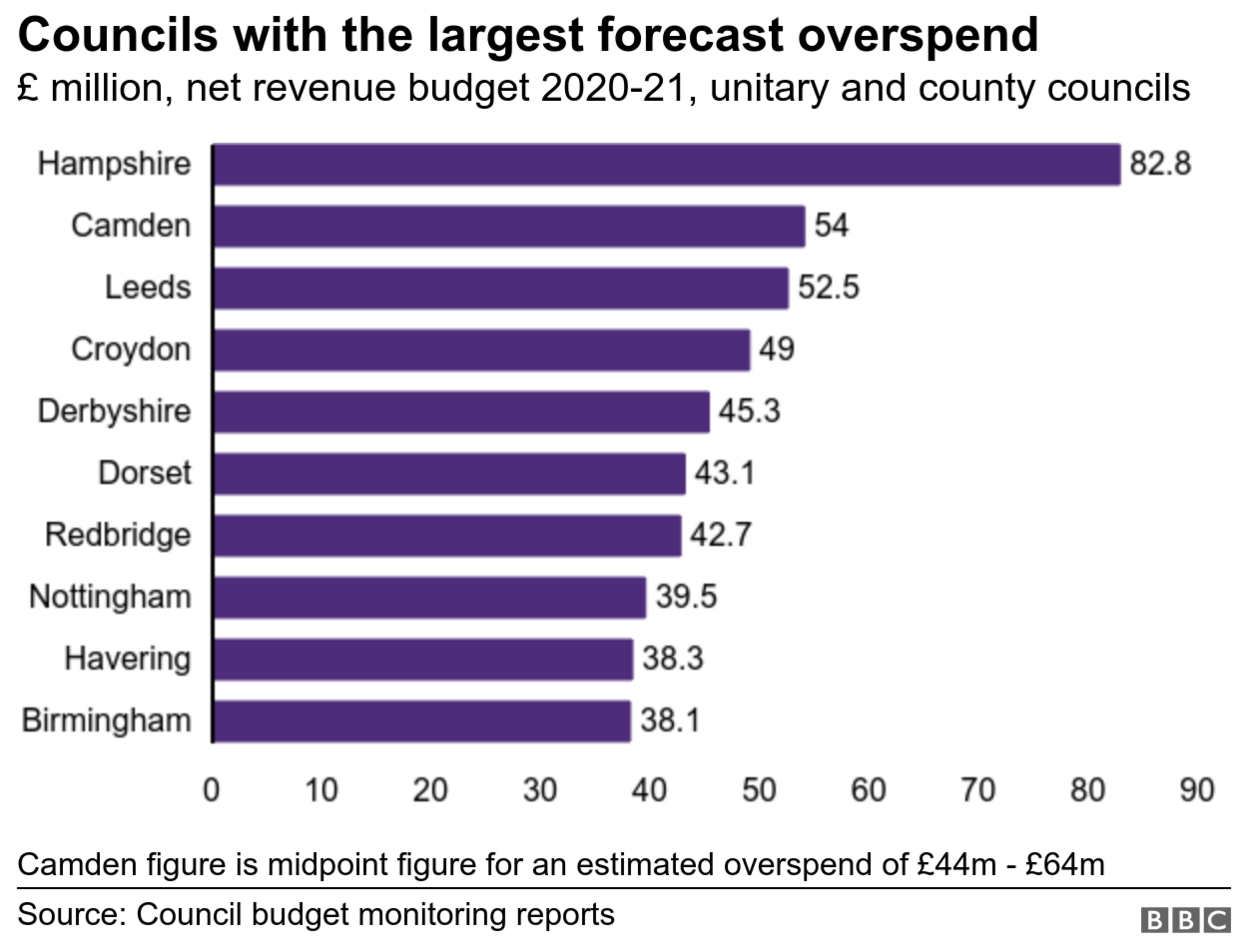
What are councils having to fund?
The budget monitoring reports published by councils in England showed they have been needing to find money to fund new costs caused by the pandemic.
The 32 borough councils in London, external have collectively set aside £16.1m to provide extra mortuary space to cope with an increase in deaths expected during the second wave of the pandemic.
England's geographically-largest authority, North Yorkshire County Council, external, estimated it could have to spend £5.6m this year on personal protective equipment.

Councils have had to spend millions of pounds on purchasing PPE
Figures published by the Ministry for Housing, Communities and Local Government, external showed in the first three months of 2020-21 spending by all councils in England was £1.7bn higher than it had been in the first three months of 2019-20.
"Securing the immediate and long-term sustainability of local services must now be the top priority for the (government's) spending review" said Councillor Richard Watts, from the Local Government Association.
"This includes the government meeting in full the financial challenges councils face as a result of Covid-19 - including all lost income - and providing long-term investment to allow councils to plug funding gaps, meet demand pressures and improve local services for communities."
How could a council balance its books by March?
There would be three main options.
Councils could stop providing or cut funding for discretionary services such as art galleries and leisure centres. This could result in job losses and a loss of some services.
But local authorities would not be allowed to completely stop providing key services such as bin collections or basic social care.
Councils could look to use money they held in reserve, a kind of savings account, to top up their current spending budgets.
Nottingham City Council, external said it was planning to use half of its cash reserves to deal with its current financial pressures. Last year the authority held £140m in reserve but it expects to use £70m this year to address its budget shortfall.
And finally the government in Westminster could provide more financial assistance to struggling councils. It has already provided £3.7bn in grant funding..
A spokeswoman for the Ministry of Housing, Communities and Local Government (MHCLG) said the government had provided a package of measures worth £28bn to help local communities through the coronavirus pandemic.
"We will continue to work closely with councils as they support their communities through the pandemic and if any are concerned about their future financial position, they should contact MHCLG," the spokeswoman added.

Viewers in Yorkshire and Lincolnshire can see more on this story on Politics North on BBC One at 10am on Sunday 11th October
Follow BBC Yorkshire on Facebook, external, Twitter, external and Instagram, external. Send your story ideas to yorkslincs.news@bbc.co.uk, external.
- Published25 June 2020
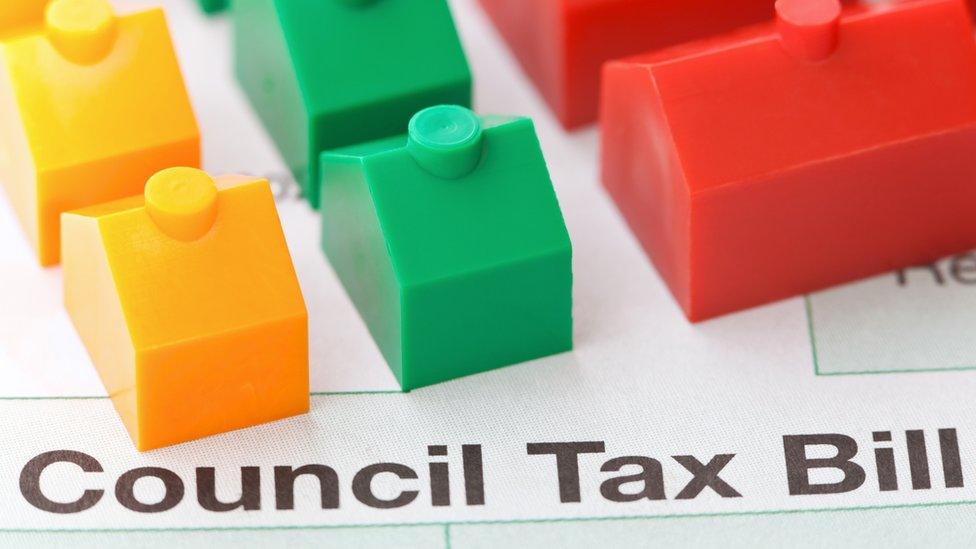
- Published17 April 2020
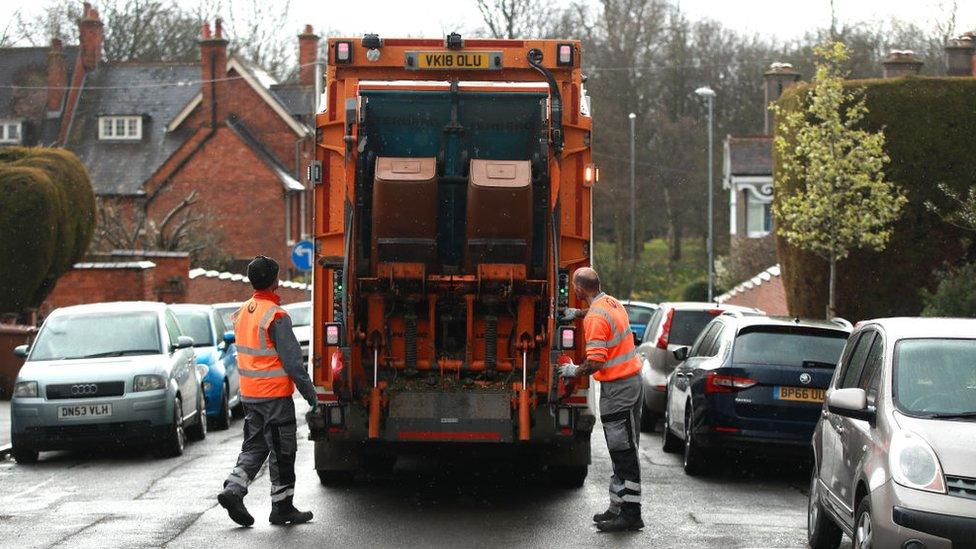
- Published1 October 2020
